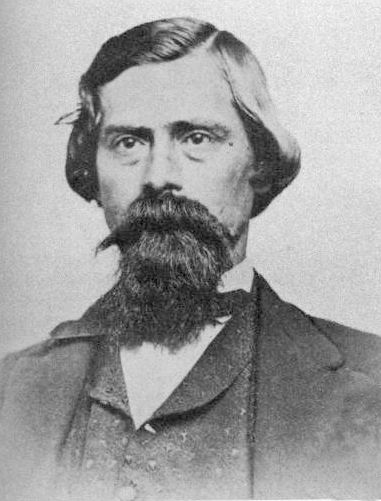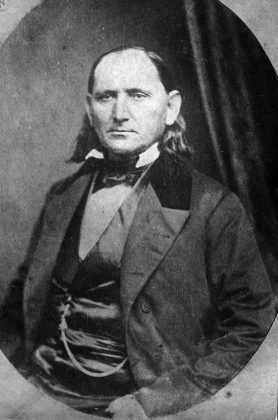interesting.na...
Some indigenous nations such as the Chickasaws and the Choctaws began to embrace the concept that African bodies were property, and equated blackness to hereditary inferiority.[7] In either case “The system of racial classification and hierarchy took shape as Europeans and Euro-Americans sought to subordinate and exploit Native Americans' and Africans' land, bodies, and labor.[1] Whether strategically or racially motivated the slave trade promoted interactions between the Five Civilized Tribes and African Slaves which led to new power relations among Native societies, elevating groups such as the Five Civilized Tribes to power and serving, ironically, to preserve native order.[8]
The writer William Loren Katz suggests that Native Americans treated their slaves better than European Americans in the Southeast.[9] Federal Agent Hawkins considered the form of slavery the tribes were practicing to be inefficient because the majority didn't practice chattel slavery.[10] Travelers reported enslaved Africans "in as good circumstances as their masters."[9] A white Indian Agent, Douglas Cooper, upset by the Native Americans failure to practice a harsher form of bondage, insisted that Native Americans invite white men to live in their villages and "control matters."[9] One observer in the early 1840s wrote, "The full-blood Indian rarely works himself and but few of them make their slaves work. A slave among wild Indians is almost as free as his owner."[11] Frederick Douglass stated in 1850,
The slave finds more of the milk of human kindness in the bosom of the savage Indian, than in the heart of his Christian master.[5]
...and it was mixed blood w/white, mestizos who were the enforcers-owners, not full blown indians

Holmes Colbert, a prominent leader in the Chickasaw Nation and the owner of several enslaved African-Americans (Wikimedia Commons)

Peter Pitchlynn, or “Hat-choo-tuck-nee,” a Choctaw chief and later tribal delegate to Washington (LC-USZ62-58502, Library of Congress Prints and Photographs Division, Washington, D.C.)
Black Slaves, Indian Masters: Slavery, Emancipation, and Citizenship in the Native American South, by Barbara Krauthamer (2013)
You are using an out of date browser. It may not display this or other websites correctly.
You should upgrade or use an alternative browser.
You should upgrade or use an alternative browser.
#AAGang how do you feel about African bed wenches eating off the feminist hustle?
- Thread starter Trajan
- Start date
More options
Who Replied?ROFLMAO!!!! @Poitier @Trajan @Indiglow Meta (R$G)
Tariq's livestream and even HE IS MENTIONING THIS!!!
Tariq's livestream and even HE IS MENTIONING THIS!!!
ROFLMAO!!!! @Poitier @Trajan @Indiglow Meta (R$G)
Tariq's livestream and even HE IS MENTIONING THIS!!!
YOoooooooooooooooooooooooooooooooooo..... He really is going in.This shyt is REALLY becoming mainstream.
Trajan
Veteran
ROFLMAO!!!! @Poitier @Trajan @Indiglow Meta (R$G)
Tariq's livestream and even HE IS MENTIONING THIS!!!
I wouldn't say it's a conspiracy to portray AAs in a negative light...more so they're hustling...exploiting the feminist narrative and generally justing jumping on bandwagons. We're starting to get them in the UK now

But I have no problem with AAs getting them outta there. That conversation has nothing to do with them
Last edited:
Indiglow Meta (R$G)
Ultra.
I wouldn't say it's a conspiracy to portray AAs in a negative light...more so they're hustling...exploiting the feminist narrative and generally justing jumping on bandwagons. We're starting to get them in the UK now
But I have no problem with AAs getting them outta there. That conversation has nothing to do with them

THE POISON!!!! STOP IT BEFORE IT'S TOO LATE!!!!!
I tried to warn brehs.
IllmaticDelta
Veteran
he went in

Trajan
Veteran
THE POISON!!!! STOP IT BEFORE IT'S TOO LATE!!!!!
I tried to warn brehs.
It's too late breh they're getting media placements...book deals etc
Indiglow Meta (R$G)
Ultra.
It's too late breh they're getting media placements...book deals etc

This shyt crazy
The Singularity
Pro
It's too late breh they're getting media placements...book deals etc
 Absolutely haram!
Absolutely haram!MajorVitaman
Superstar
Thought this would fit here as well
I Never contradicted myself, I clearly stated Jamaicans don't consider you Jamaican if you were born here in america, they'll call you a Yankee in a derogatory way, it's a weird paradigm, I know my roots and i grew up in a Jamaican neighborhood but i was Americanized and i assimilated African American culture
You speaking facts
I´m waiting for the day that Twitter and the ADOS community online especially catch onto ¨Yankee¨. I love how Jamaicans be saying it to any second generation relative or peer of theirs who didnt grow up in Jamaica but will then front and act like its meant for anybody of any race in America. Nah....they mean it for Blacks the same way Nigerians use Akata for Blacks. If Jamaicans meant white people also they say it.
Im really waiting patiently for the day that people discover Yankee the same way Akata was discovered. Actually a documentary that trends talking about Yankee in a derogatory way is possibly the best thing. I will laugh seeing the cowardly excuses claiming that Black Americans got it wrong. Matter of fact the very fact that they been using ¨Yankee" for generations shows how disillusioned they are and only know America from New York.
Matter of fact @IllmaticDelta and @Selah and other ADOS, do you think a movement needs to be pushed for more of the ADOS community online to start documentaries themselves on these things? Like the history behind derogatory terms Yankee(Jamaican) and Akata(Nigerian) and also a media network telling people of less known aspects of Black American culture.
thatrapsfan
Superstar
It's too late breh they're getting media placements...book deals etc
Its so wild how this trend has exploded almost solely off the strength of the internet/social media

I had a coworker from Guyana that called me a yankee. I was playing reggae, like 70's roots, and she said something like "I don't know too many yankees that listen to this". I didn't grow up around too many foreign Black people so I never knew it was used in a derogatory way, plus she was always bringing me food and gifts so I don't think she was being slick. I don't like that shyt thoughYou speaking facts
I´m waiting for the day that Twitter and the ADOS community online especially catch onto ¨Yankee¨. I love how Jamaicans be saying it to any second generation relative or peer of theirs who didnt grow up in Jamaica but will then front and act like its meant for anybody of any race in America. Nah....they mean it for Blacks the same way Nigerians use Akata for Blacks. If Jamaicans meant white people also they say it.
Im really waiting patiently for the day that people discover Yankee the same way Akata was discovered. Actually a documentary that trends talking about Yankee in a derogatory way is possibly the best thing. I will laugh seeing the cowardly excuses claiming that Black Americans got it wrong. Matter of fact the very fact that they been using ¨Yankee" for generations shows how disillusioned they are and only know America from New York.
Matter of fact @IllmaticDelta and @Selah and other ADOS, do you think a movement needs to be pushed for more of the ADOS community online to start documentaries themselves on these things? Like the history behind derogatory terms Yankee(Jamaican) and Akata(Nigerian) and also a media network telling people of less known aspects of Black American culture.
I had a coworker from Guyana that called me a yankee. I was playing reggae, like 70's roots, and she said something like "I don't know too many yankees that listen to this". I didn't grow up around too many foreign Black people so I never knew it was used in a derogatory way, plus she was always bringing me food and gifts so I don't think she was being slick. I don't like that shyt though
I consider it derogatory because of the way they use it and how they have used the ¨Black Americans are lazy and dont like to work" talking point for decades. What I noticed though is Caribbeans are more passive aggressive so she was being slick but its so ingrained in the culture that they think nothing of it. Africans with ¨Akata¨ are more abrasive with how they use it. Caribbeans live around Black Americans alot more often so they try to be fake.
I also wanna say to remember that you said coworker and lets remember that regardless of race or ethnicity many people dont act in the workplace how they would in person. Coincidently had a coworker from Guyana at my last job(no honestly i wish i was lying about the coincidence) , she was an older woman who I was alright with at the start I guess but said suspect things later on and gave off a very bougie vibe. I remember one time me and my supervisor were in the break room and we got on the topic of Trump and when I mentioned the obvious about him being a racist...captain obvious alert, she sighed and kissed her teeth and went on some speech how he aint a racist and how he is just a businessman and went on to talk about people just dont get him and mentioned things he did that summed up in her eyes how he is great at business.
When the Chinese run around Africa and the Caribbean and spread their fentanyl drugs like Reagan did with crack in America, they gonna learn real quick. I know that was random as hell lol. Im telling you so many of those people got this real bougie attitude. They wench and buck like crazy and end up having all these confused biracial kids with Indian fathers like Nicki Minaj . I dont know what it is but its mainly alot of the women who swirl the most in the islands
You’re being incredibly disingenuous comparing yankee to akataYou speaking facts
I´m waiting for the day that Twitter and the ADOS community online especially catch onto ¨Yankee¨. I love how Jamaicans be saying it to any second generation relative or peer of theirs who didnt grow up in Jamaica but will then front and act like its meant for anybody of any race in America. Nah....they mean it for Blacks the same way Nigerians use Akata for Blacks. If Jamaicans meant white people also they say it.
Im really waiting patiently for the day that people discover Yankee the same way Akata was discovered. Actually a documentary that trends talking about Yankee in a derogatory way is possibly the best thing. I will laugh seeing the cowardly excuses claiming that Black Americans got it wrong. Matter of fact the very fact that they been using ¨Yankee" for generations shows how disillusioned they are and only know America from New York.
Matter of fact @IllmaticDelta and @Selah and other ADOS, do you think a movement needs to be pushed for more of the ADOS community online to start documentaries themselves on these things? Like the history behind derogatory terms Yankee(Jamaican) and Akata(Nigerian) and also a media network telling people of less known aspects of Black American culture.
Misrepresenting your culture for Coli acceptance ain’t the wave